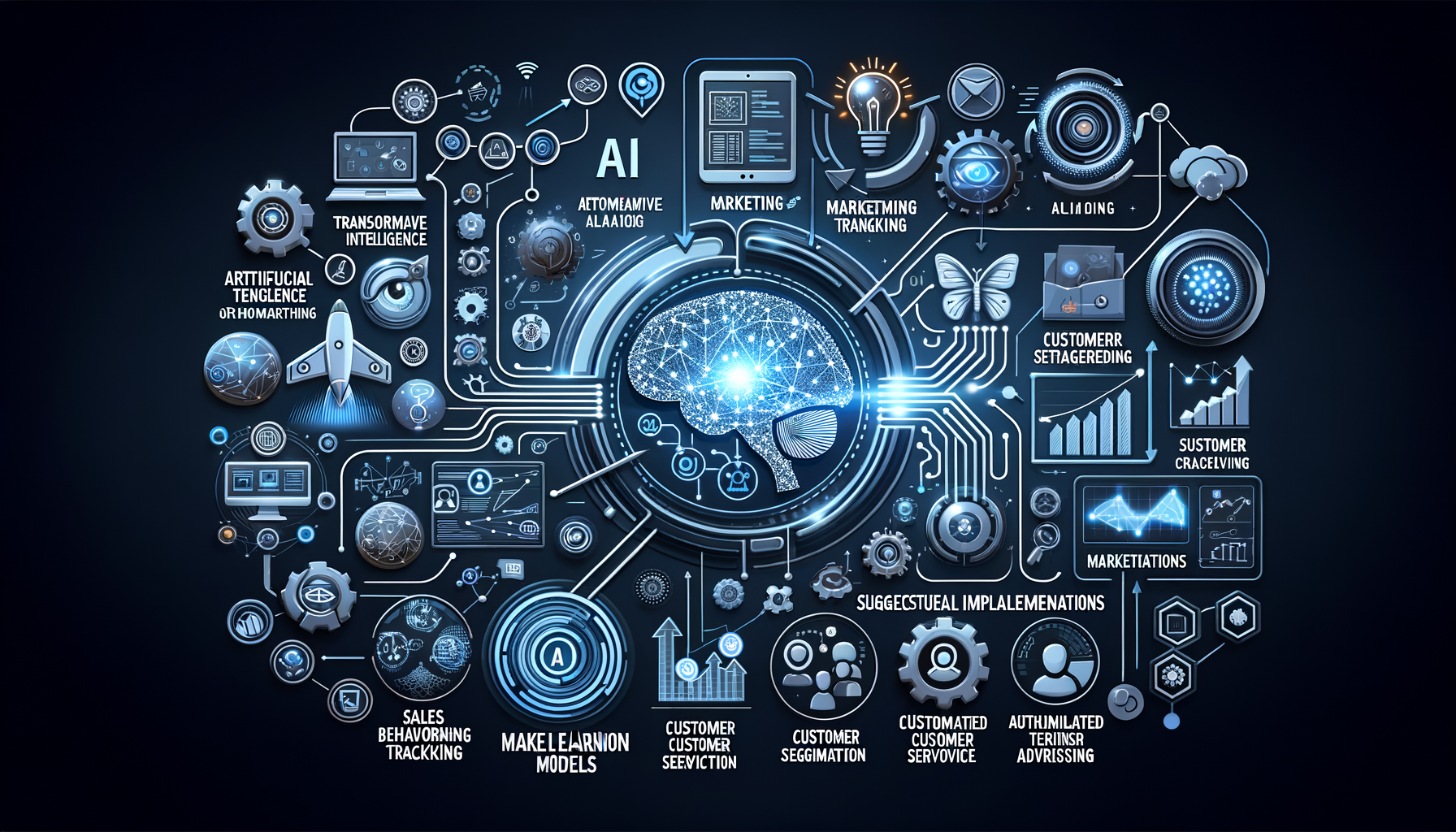Introduction
Artificial Intelligence (AI) is revolutionizing the marketing landscape, providing tools and insights that empower marketers to enhance customer engagement, drive conversions, and streamline operations. As consumer expectations evolve, AI stands as a pivotal feature in adapting marketing strategies to meet these demands effectively.
Key Insights
1. Personalization and Predictive Analysis: Leverage AI to tailor marketing efforts directly to consumer behavior, enhancing engagement and boosting conversion rates. Use platforms like Azure OpenAI to analyze customer data and predict future buying patterns.
2. Automation of Tasks: Employ AI to automate repetitive tasks such as data analysis and customer segmentation, allowing marketing teams to focus on strategic decision-making. Tools such as Microsoft Cognitive Services can automate routine tasks efficiently.
3. Enhanced Customer Service: Implement AI-powered chatbots to provide 24/7 customer service, delivering personalized recommendations and addressing inquiries in real-time, thereby improving customer satisfaction.
4. SEO and Content Marketing: Utilize AI to enhance SEO through better keyword research and content optimization. Use AI tools to analyze large data sets, helping in creating personalized content that increases engagement.
5. Social Media Marketing: Deploy AI-driven social listening tools to analyze consumer sentiments and behaviors, allowing for tailored strategies for different audience segments.
6. Email Marketing and CRM: Optimize email campaigns using AI for better content and timing, ensuring higher open rates and improved campaign effectiveness.
7. Programmatic Advertising: Utilize AI for programmatic advertising to automate the placement of digital ads. Analyze user behavior in real-time to ensure your ads reach the right audience at the right time and enhance ad efficiency.
8. Challenges and Limitations: Be aware of the challenges AI presents, including ethical considerations around data privacy and the complexities involved in deploying AI solutions. Small businesses should consider scaling solutions that fit their resources.
Implementation
To effectively integrate AI into your marketing strategy, follow these actionable steps:
- Conduct a thorough assessment of your existing marketing processes and identify areas where AI can add value.
- Choose the right AI tools, such as Azure OpenAI for predictive analytics and Microsoft Cognitive Services for automation, that align with your strategic goals.
- Train your marketing team on how to leverage AI technologies effectively, ensuring they understand both capabilities and limitations.
- Start with pilot projects focusing on specific marketing functions (e.g., email campaigns or chatbots) before scaling to a comprehensive AI integration.
- Regularly measure the effectiveness of AI initiatives and refine your approach based on data-driven insights.
Conclusion
The integration of AI into marketing strategies is not just a trend but a fundamental shift towards data-driven decision-making and personalized customer engagement. By adopting these technologies, businesses can innovate and differentiate themselves in a competitive marketplace. Embrace AI, and you will not just keep pace with change but potentially lead it, unlocking new avenues for growth and efficiency.

